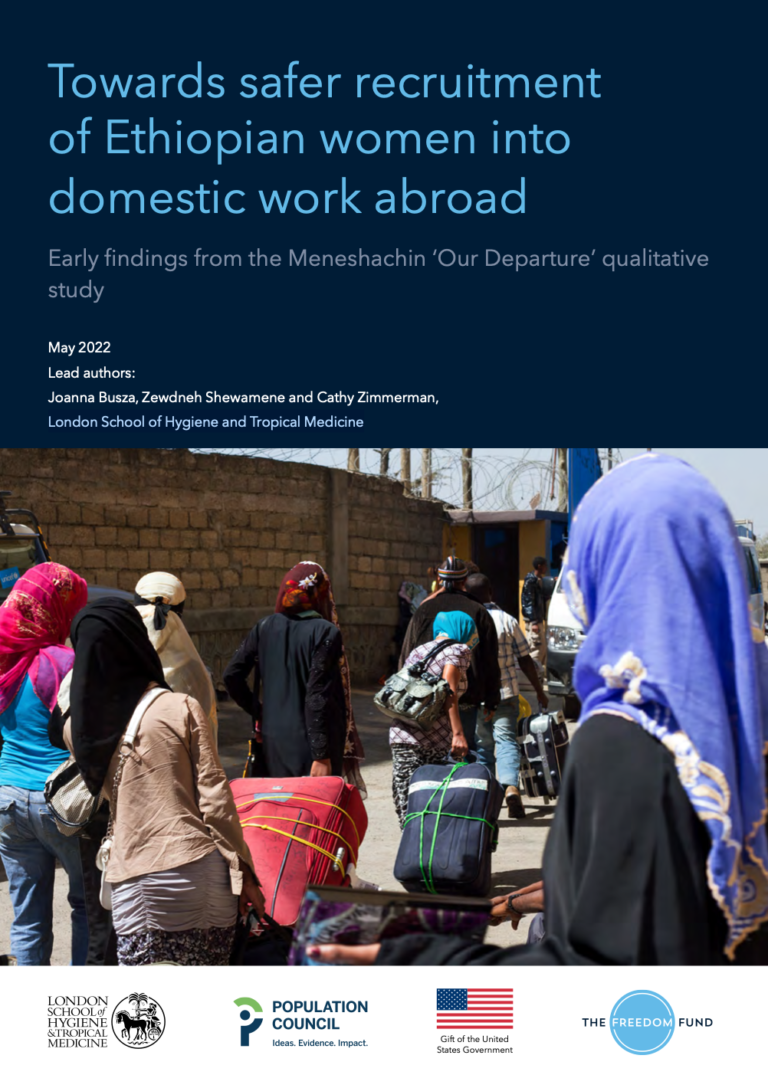Six steps to responsible recruitment: Implementing the employer pays principle
GuidanceA six step guide to implementing the Employer Pays Principles, in alignment with the UN Guiding Principles on Business and Human Rights. Reflecting the Dhaka Principles for Migration with Dignity, the Employer Pays Principle is a commitment to ensur...Read More

